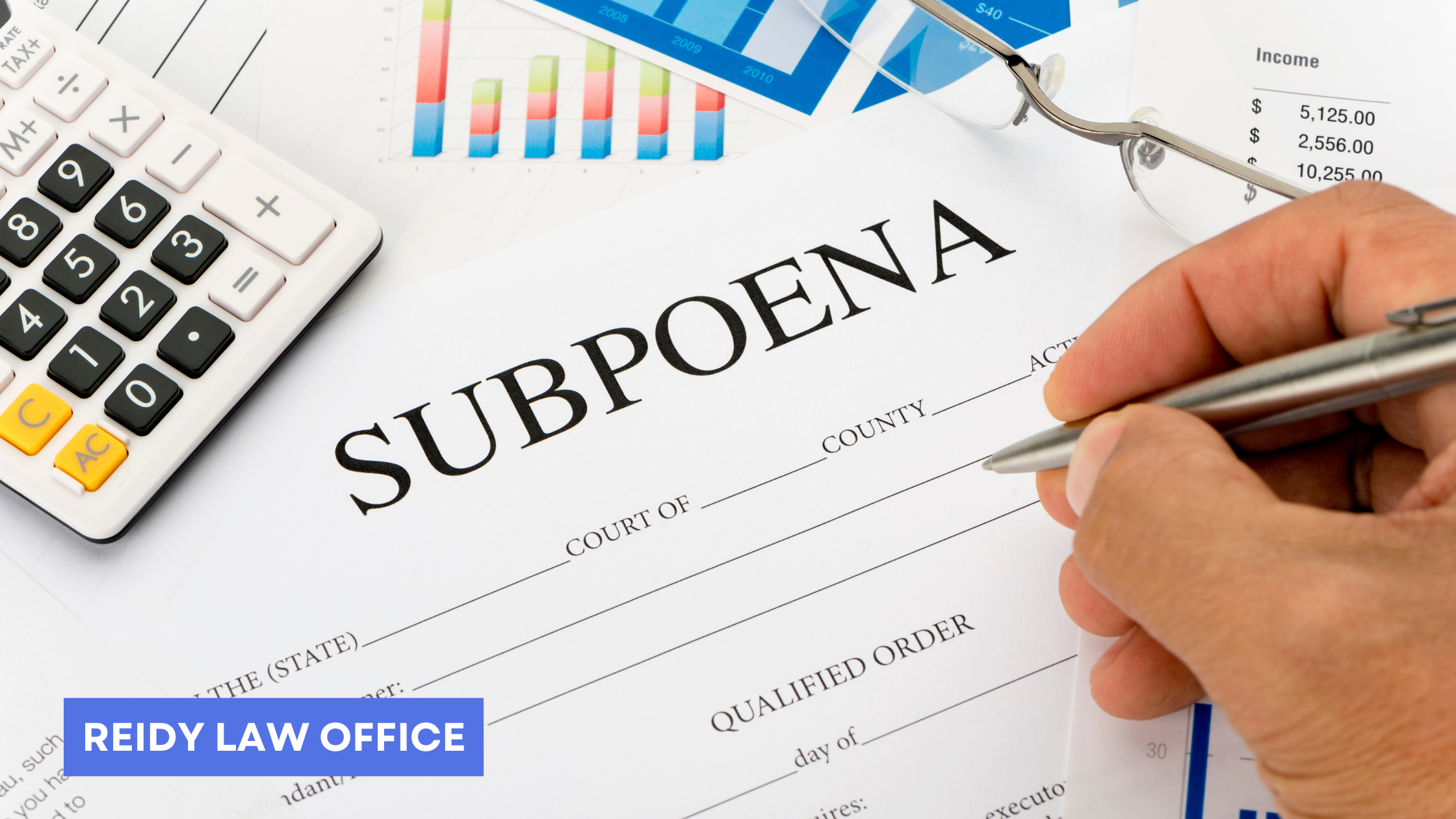Navigating the divorce process can be complex, and understanding Divorce Discovery Options is a critical part of ensuring a fair and transparent outcome. Discovery is the legal process where both parties exchange information about assets, debts, income, and other relevant details, laying the groundwork for informed decisions. By exploring the available Divorce Discovery Options, you can uncover key details that help protect your interests and move toward a resolution with clarity and confidence.
In a court process, a case concludes either through an agreement or a judge’s decision, and having the necessary information is crucial for making an informed agreement. Discovery allows you to gather relevant information, though not every case requires it. It’s essential to assess the stakes of your situation and consult with your attorney to tailor your strategy accordingly. Understanding common discovery tools can further aid in this process.

Divorce Discovery Options
Discovery in a divorce case is the legal process through which both parties gather and exchange essential information to ensure transparency and fairness in the proceedings. This phase is crucial for uncovering details about assets, debts, income, and any other relevant facts that may influence decisions related to property division, child custody, and support arrangements. Divorce Discovery Options are tools that allow each spouse to access necessary documentation and verify claims, ensuring that both parties have a complete picture of their financial and personal situation before reaching an agreement or proceeding to trial.
The importance of discovery lies in its ability to eliminate guesswork, as it provides a structured way to verify information and uncover hidden assets or income. Divorce Discovery Options such as interrogatories, requests for production of documents, and depositions enable attorneys to ask targeted questions and obtain evidence, ensuring that the process remains thorough and equitable. Properly conducted discovery helps build a solid foundation for negotiations and court proceedings.
With a clear understanding of what discovery entails, the next step is to explore why it plays such a vital role in divorce proceedings and how it can influence the outcome of your case.
Discovery is a critical component of divorce proceedings because it ensures transparency, fairness, and informed decision-making throughout the process. By using Divorce Discovery Options, both parties gain access to important information about assets, debts, income, and other factors that may influence property division, spousal support, and child custody arrangements. This process is designed to prevent surprises, uncover hidden assets, and establish an accurate picture of the marital estate, which is essential for equitable resolutions.
The importance of discovery extends beyond financial transparency. It also enables both parties to evaluate claims, identify potential discrepancies, and build a stronger case. Without thorough discovery, one party may unknowingly accept unfavorable terms or miss critical information that could impact the outcome. Using Divorce Discovery Options, such as interrogatories and depositions, ensures that both parties have the tools to verify information and present their case effectively.
Understanding the significance of discovery highlights the value of exploring the specific tools available. Next, we’ll examine the most common Divorce Discovery Options used during divorce proceedings.
The most common Divorce Discovery Options provide structured methods for gathering information and evidence critical to resolving divorce cases fairly. Interrogatories are a frequently used tool, where each party submits written questions to the other that must be answered under oath. These questions often focus on finances, assets, and any other relevant details that could impact the division of property, support, or custody arrangements. Similarly, a Request for Production of Documents allows one party to request specific documents from the other, such as bank statements, tax returns, or business records, ensuring transparency in financial matters.
Depositions are another widely used option, enabling attorneys to ask oral questions directly to a spouse or relevant third parties. This option is particularly useful for gathering detailed explanations and identifying inconsistencies in a party’s statements. Subpoenas are also common, compelling third parties, such as employers or financial institutions, to provide documents or testimony relevant to the case. Each of these Divorce Discovery Options plays a unique role in building a comprehensive understanding of the marital estate and other critical factors.
Having explored the common discovery tools, it’s essential to delve deeper into how each option works, starting with interrogatories and their role in uncovering vital information.
Financial Affidavit:

In nearly all divorce cases, you must complete a financial affidavit. It is a great starting point because it provides a summary of income, expenses, assets, and liabilities.
After reviewing the other sides financial affidavit, you should work with your attorney to determine whether you should serve additional discovery. There are pros and cons of issuing more discovery. If you already know what the other side has and their financial affidavit is consistent with what you know, the additional costs of discovery may not be best for you. However, if their financial affidavit is questionable or you know you need more information, the investment in discovery is probably right for you. The most common forms of additional discovery are as follows:
Interrogatories: These are written questions directed to the opposing party seeking information about facts relevant to the case. The other side must answer under oath and in writing. You may ask 30 total questions, or you may use “standard” interrogatories in divorce cases, which the Illinois Supreme Court approved.
Interrogatories are a fundamental tool within Divorce Discovery Options, allowing each party in a divorce case to request detailed written answers from the other. These questions, which are answered under oath, cover a wide range of topics such as income, assets, liabilities, living expenses, and other factors that could influence the division of property, alimony, or child support. Interrogatories are particularly effective for clarifying financial details, as they compel the responding party to provide specific, documented responses that can be used to assess the marital estate or evaluate potential discrepancies.
In most cases, attorneys carefully craft interrogatories to gather precise information while adhering to court-mandated limits on the number of questions. For example, a spouse may be asked to disclose bank account balances, details about retirement funds, or explanations for any significant financial transactions. Because the answers are given under oath, providing false or misleading information can have serious legal consequences, making interrogatories a reliable way to obtain accurate data. As one of the most straightforward Divorce Discovery Options, interrogatories can lay the groundwork for more detailed investigation if inconsistencies arise.
With an understanding of how interrogatories function, it’s also important to explore other methods for obtaining information, such as Requests for Production of Documents, which allow for an even deeper dive into financial and personal records.
Notice to Produce (AKA Request for Production of Documents): You can ask the other party to produce documents for your review. For example, in many divorce cases you could request three to five years of bank statements; credit card statements; business records; retirement statements; and/or other documents showing other assets/liabilities. Reviewing documents is important to understand the history before things went bad in the marriage so that you can make an educated decision on what you want to seek in the outcome. Reviewing documents can also identify dissipation, which is spending marital funds on a non-marital purpose (e.g., having a new significant other or a sudden gambling addiction).
A Request for Production of Documents is one of the most powerful Divorce Discovery Options, enabling one party in a divorce case to formally request specific documents from the other. This tool is essential for uncovering and verifying financial information, assets, debts, and other key details needed to resolve disputes over property division, child support, or spousal maintenance. The requesting party can demand records such as bank statements, tax returns, business records, loan documents, or evidence of expenditures, all of which must be provided within a specified time frame.
This process ensures transparency and accountability, as failing to produce requested documents or providing incomplete information can result in legal penalties. Requests for Production of Documents are especially useful in cases where there are suspicions of hidden assets or undisclosed income, as they allow attorneys to follow a clear paper trail. By requiring the production of verifiable records, this discovery method reduces the risk of financial deception and helps create a more accurate picture of the marital estate.
Having explored this important tool, it’s helpful to examine how depositions work, another crucial component of Divorce Discovery Options that allows for in-depth questioning in a formal setting.

Subpoena: If a Notice to Produce cannot provide you what you need, or perhaps you do not trust that they will comply properly, you can send a subpoena directly to a third party. A subpoena may require the production of documents, an in-person deposition, or both. This is a very useful tool in the discovery tool belt because a properly executed subpoena can provide much needed evidence in court without requiring live testimony. Work with your attorney to best understand how it could work for you.
Subpoenas play a critical role in the discovery process by compelling third parties to provide evidence or testimony relevant to a divorce case. Among the many Divorce Discovery Options, subpoenas are uniquely powerful because they allow attorneys to obtain information directly from sources such as banks, employers, or other entities that may possess vital records. These documents or testimonies are often critical for uncovering hidden assets, verifying income, or obtaining other evidence that one party may not willingly disclose.
A subpoena can require the production of financial statements, employment records, or even electronic communications, ensuring that all relevant information is brought to light. Failure to comply with a subpoena can lead to legal consequences, making it a highly effective tool in cases where voluntary cooperation is limited. This option is especially useful when dealing with complex financial situations, as third-party records can provide an unbiased perspective on the true state of the marital estate. As one of the most assertive Divorce Discovery Options, subpoenas ensure that no critical detail is overlooked in the pursuit of fairness and transparency.
With subpoenas offering such a robust method for obtaining external information, it’s equally important to understand how depositions can provide deeper insight by allowing parties to question witnesses under oath.
Deposition: A deposition is when an attorney asks questions of an individual to obtain information under oath while a court reporter records the answers. Anyone who could provide relevant information may be deposed. A deposition serves three primary purposes: (1) It will “lock” in testimony, meaning that the person testifying in a deposition must answer consistently during trial or risk their credibility with the judge; (2) Your Attorney can assess how the deponent is as a witness (e.g., are they combative or will they be a good witness in trial?); and (3) it may lead to other evidence to explore.
Depositions are a valuable part of Divorce Discovery Options, providing an opportunity for attorneys to question parties and witnesses under oath in a formal setting. During a deposition, one party’s attorney can ask detailed questions to clarify facts, gather information, and uncover inconsistencies in testimony. The session is typically recorded by a court reporter, and the answers can later be used as evidence in court. This process allows for a more thorough understanding of the case, helping attorneys build stronger arguments or identify areas requiring further investigation.
Depositions are especially useful in complex divorce cases where financial or custodial issues are heavily contested. For example, an attorney may use a deposition to ask a spouse about their financial practices, employment details, or decision-making in child-rearing. This option ensures that both parties have the opportunity to present and scrutinize critical details, providing a more comprehensive view of the situation. Among the various Divorce Discovery Options, depositions stand out as a tool for gaining real-time responses and identifying discrepancies that may not be evident in written answers.
With an understanding of how depositions provide deeper insight, it’s essential to consider whether there are limits to the discovery process and how such limits may affect the available options.
Yes, Divorce Discovery Options can be limited or refused in certain circumstances. While discovery is generally designed to promote transparency and fairness, there are legal boundaries in place to prevent abuse or the undue burden of excessive requests. A party may object to specific discovery requests if they believe the questions are irrelevant, overly broad, or if responding would cause an unreasonable expense or delay. For example, a request for documents that have no bearing on the divorce case or questions that invade a person’s privacy might be contested in court.
If a request is deemed inappropriate, a judge can rule on whether it should be enforced, narrowed, or completely denied. In some cases, one party may refuse to comply with discovery demands altogether, but such refusal could lead to sanctions, including fines or adverse rulings in the case. These limitations are important to balance the need for information with fairness and efficiency in the legal process. Understanding the parameters of Divorce Discovery Options can help both parties navigate these boundaries while still gathering the necessary information to build their case.
After considering the potential limitations on discovery, it’s essential to explore how discovery costs may factor into the decision to use certain options, as these costs can be a significant consideration for many.
The costs associated with Divorce Discovery Options can vary significantly depending on the complexity and scope of the information being requested. Discovery tools such as depositions, subpoenas, and Requests for Production of Documents often involve legal fees, administrative expenses, and sometimes expert consultations. For example, depositions require a court reporter to record the proceedings, which can be expensive. Additionally, the cost of gathering documents through subpoenas may involve third-party fees, such as those charged by financial institutions or other entities that are required to produce records.
These expenses can quickly add up, especially in high-conflict cases where extensive discovery is necessary. Attorneys often bill hourly for their time spent managing discovery, reviewing documents, and conducting depositions, which can further increase costs. While these tools are invaluable for obtaining crucial information, it’s important for clients to understand the potential financial impact of using multiple Divorce Discovery Options.
Considering these expenses, it’s crucial to weigh the necessity of each discovery method carefully, which leads us to the next question—how can one minimize these costs while still obtaining the necessary information?
Preparing for the discovery process in your divorce is crucial to ensure that you navigate Divorce Discovery Options effectively and efficiently. First, it’s important to gather all relevant financial documents, including tax returns, bank statements, investment records, and any other materials related to assets or debts. Organizing this information in advance can help you respond more quickly and accurately to discovery requests, saving both time and money in the long run. You should also be prepared to answer interrogatories—written questions that must be answered under oath—by reviewing your financial history and being ready to disclose key details that may affect property division, alimony, or child support.
Moreover, it’s essential to collaborate closely with your attorney, who will help identify which Divorce Discovery Options are most appropriate for your case. Depending on the specifics of your divorce, your attorney might recommend certain discovery methods, such as requesting production of documents, sending subpoenas to third parties, or scheduling depositions. By understanding your rights and responsibilities and working closely with your legal team, you can ensure that the discovery process is as smooth and effective as possible.
With a clear understanding of how to prepare for discovery, it’s helpful to explore how you can minimize costs associated with these options without compromising your case.
It is so important that you get customized help for your specific situation. Do not read this and assume you know the best options for your goals. It is important to establish your goals. Then have professionals guide you on the path so that you achieve your opportunity for happiness.
If you want to learn more about discovery, check out our 4-part video series on YouTube.
Working with Reidy Law Office offers clients professional and compassionate support in family law matters, including divorce, child custody, spousal support, and asset division. The firm’s expertise covers Illinois-specific family law issues, focusing on providing customized legal solutions for each client’s unique needs.
From guiding clients through the complexities of divorce to representing their interests in court, Reidy Law Office prioritizes a clear, client-centered approach. They can assist with both contested and uncontested divorces, help clients navigate property division, and work through challenging matters like parental responsibilities and visitation rights. The team is also skilled in alternative dispute resolution methods, including mediation, to help clients reach amicable agreements without the stress of a court trial.
For more information or to schedule a consultation with Reidy Law Office, you can visit their website directly at reidylawoffice.com

Contemplating divorce is a profound step that involves emotional, financial, and legal considerations. Our "Am I Ready for Divorce?" checklist is a sensitively designed tool that helps individuals thoughtfully assess their readiness for this life-altering decision. This resource aims to guide you through introspection and practical evaluation, ensuring that your decision to pursue a divorce is made with both clarity and foresight.
In any legal or financial undertaking, having a comprehensive and organized set of financial records is critical. Our "Financial Records Checklist" is crafted to give you the clarity and control needed to manage your finances effectively. Whether you're preparing for tax season, undergoing legal proceedings, or simply aiming to get your financial house in order, this checklist is an indispensable tool for ensuring nothing is overlooked.
Divorce not only signifies a major shift in the lives of the parents but also heralds a period of adjustment and emotional transition for the children involved. Our meticulously crafted checklist, "Do Your Kids Need Therapy After Divorce?" is a vital resource for parents concerned about the psychological welfare of their children during and after a divorce. This checklist serves as a compassionate guide for recognizing signs of distress and taking proactive steps to support your child's mental health.
Divorce can be a complex and emotionally taxing journey, but when both parties agree on the key terms, an uncontested divorce can offer a more amicable and efficient path forward. Our Uncontested Divorce Checklist is a comprehensive guide designed to provide individuals with a clear roadmap through the legal process when there are no children involved. This free resource ensures that you are well-prepared, informed, and ready to proceed with confidence.